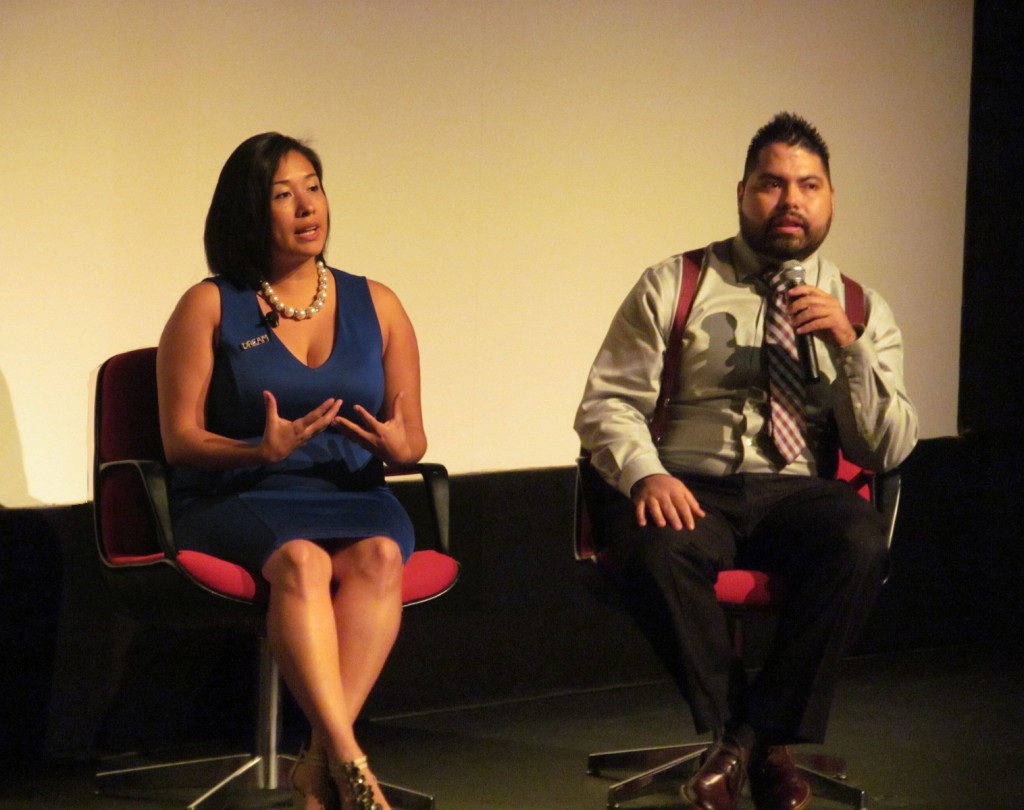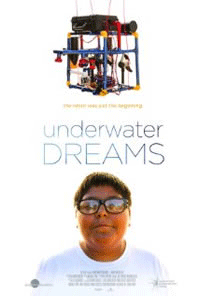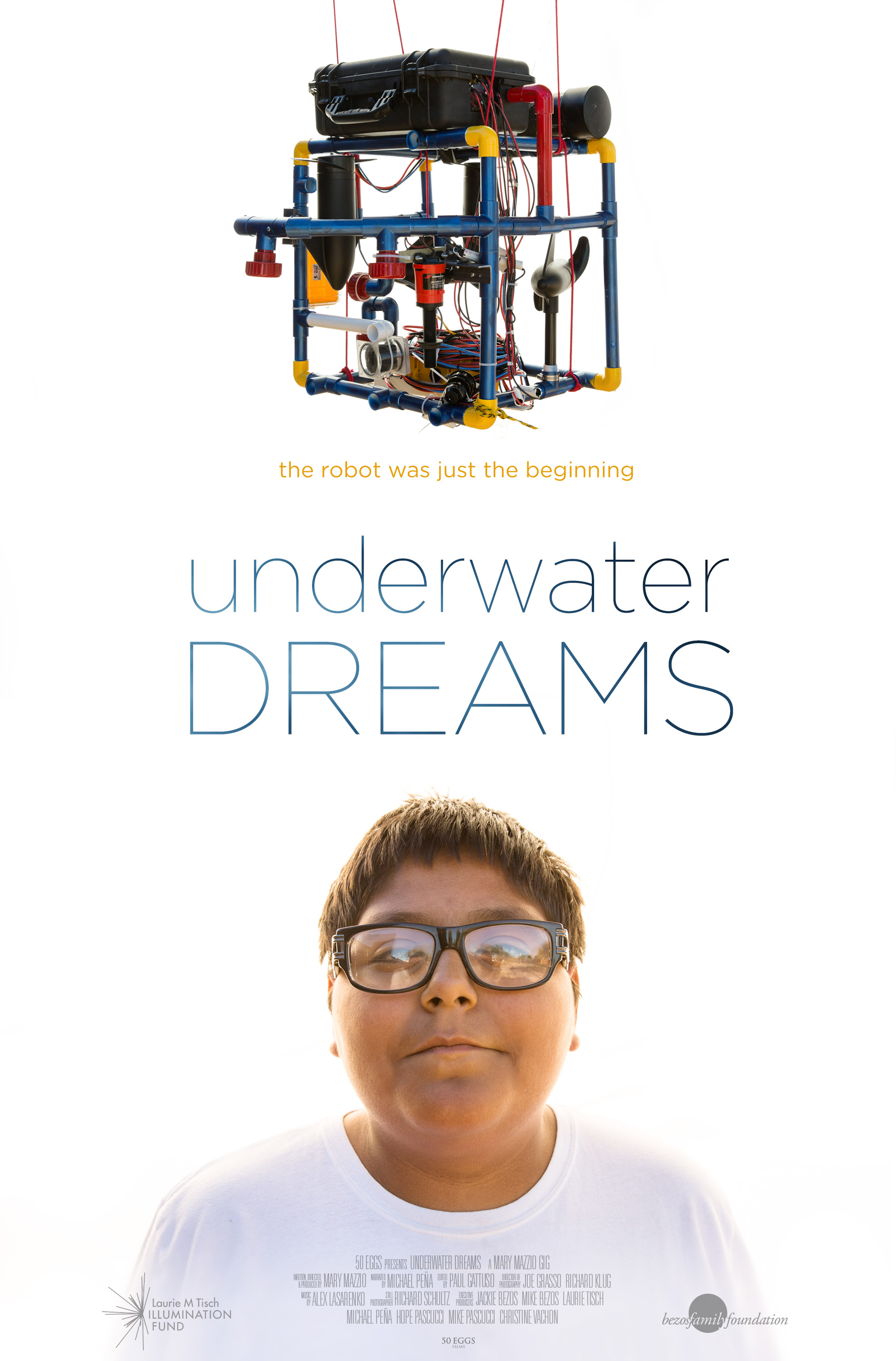Sunken Dreams

When four undocumented students from Carl Hayden Community High School entered the Marine Advanced Technology Education Center’s underwater robotics competition in 2004, they would have been thrilled by just not placing last. Winning meant college scholarships and a way out of the poverty and hopelessness of Phoenix’s inner city.
UHCL’s Bayou Theater attendees alternated between exploding with laughter and falling into silence as the boys recounted their story in the documentary “Underwater Dreams,” which was shown Oct. 3 as part of the UHCL Film and Speaker Series.
High school students Lorenzo Santillan, Oscar Vazquez, Luis Aranda and Cristian Arcega competed at the collegiate level against Massachusetts Institute of Technology and other prestigious colleges and universities even though their resources were significantly less that that of their competitors.
MIT’s robot, which was sponsored by Exxon Mobile, cost thousands of dollars. By comparison, Carl Hayden Falcon Robotics Team’s robot was made of PVC and cost about $800. The team named their robot “Stinky” because of the smell of the glue used to hold the PVC piping together.
When they first arrived at the competition, held in Santa Barbara, Calif., they were surprised to see they were the only Hispanic team at the competition.
“Nobody was Mexican or Hispanic or Latino,” said Santillan, one of the featured guest speakers for the film and speaker evening. “I had never seen that much white people.”

Against all odds – including solving a competition-ending leak by using imaginative methods – the Falcon Team won.
“My idea was a tampon,” Santillan said.
It was this kind of out-of-the-box thinking that won them the competition and catapulted this unlikely group of high school robotics students into the elite company of students from the top engineering universities in the country. In fact, one of the MIT students they defeated went on to design Apple’s EarPods.
It’s the American dream, right? The team went on to secure full scholarships to attend those prestigious universities they competed against and are now successful engineers doing great things in our communities, right? Wrong.
Proposition 300 prevents undocumented students from receiving financial aid that is funded by the state and from receiving in-state tuition rates. Passed in November 2006, the proposition directly affected the bright future of the 2004 Carl Hayden Falcon Robotics Team.
Santillan had to pay out-of-state tuition in order to attend culinary school.
“I have my own catering business, and I work at a local restaurant,” Santillan said.
Aranda is currently working as a janitorial supervisor while helping Santillan with his catering business.
Arcega received a full scholarship to Arizona State University until Proposition 300 passed. He later went on to study precision and computer-aided manufacturing at a community college. He worked for a time at Home Depot but now is building his own consumer electronics business.
Vazquez wasn’t content to live under the shroud of secrecy that surrounds undocumented status. After receiving a degree in mechanical engineering from Arizona State University, Vazquez self-deported in order to re-enter the U.S. legally. He left his wife and small child in Phoenix to work at a car parts factory in Mexico only to have his waiver of excludability based on extreme hardship denied by Homeland Security.
Democratic Sen. Dick Durbin of Illinois heard Vazquez’s story from local leaders and persuaded Homeland Security to review Vazquez’s application again. This time Vazquez was granted a green card. He then joined the Army, serving five years, which included one tour in Afghanistan. He is now an engineer for BNSF railroad.
Dulce Matuz, one of Time Magazine’s “World’s 100 Most Influential People of 2012” and a member of the Carl Hayden Falcon Robotics 2003 team, was also a featured guest speaker for the evening. Matuz serves as the president of the Arizona Dream Act Coalition, an immigrants’ rights organization. Like the 2004 team members, Matuz is undocumented. After earning an engineering degree from Arizona State University, she started her own real estate business.
“When you’re undocumented, you have to find solutions on how to get income,” Matuz said. “We can open our own businesses, an LLC. Even though we cannot be hired, our company can be contracted, and in some cases we can create jobs for American citizens.”
About 65,000 undocumented students graduate from high school every year in the U.S. The Dream Act Coalition that Matuz represents is un-passed legislation that would permit undocumented students who grew up in the U.S. to apply for temporary legal status and become eligible for citizenship if they attend college. It would also allow undocumented students to qualify for in-state tuition.
“Not just on the issue of DREAMers, but in any other issue that you care about, I think the first step is educating, then mobilizing and acting,” Matuz said.
A new feature movie based on “Underwater Dreams” will be released in 2015. The movie is titled “Spare Parts” and stars George Lopez, Marisa Tomei and Alexa PenaVega.
“Of course, we have people that are looking at us now, like the CEO of iRobot and Dean Kamen, the co-founder of FIRST robotics competition,” Santillan said. “These guys are the movers and shakers of the STEM field. So, if these guys are the ones that are going to create the jobs – if these guys are supporting us, I think that they’ll see and it will be a humanizing story.”

